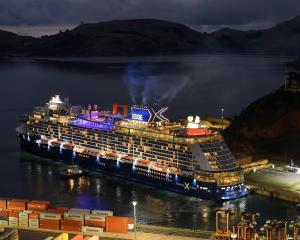Mighty River Power's next chief executive, Fraser Whineray, sees flat demand as the biggest challenge facing the electricity generator and retailer.
New Zealand's power consumption has been static at around 38-39 billion kilowatt hours a year since 2008 due to a number of factors.
Plant closures in the high energy use area such as pulp and paper, subdued economic conditions after the global financial crisis, better insulation and more efficient electrical appliances have all weighed on demand.
"The biggest challenges in front of us right now are in the business environment," Whineray said at news conference called to announce his appointment.
"We have continued to grow for some time, despite flat demand because of our positioning in geothermal development which has displaced other generators," said Whineray, who will take over from current chief executive Doug Heffernan on September 1.
Whineray said the company had also achieved growth through innovations at the customer level, such as pay-as-you-go products and through the rollout of smart meters.
He said he was optimistic about the company's future growth, which he said would come from a variety of sources but not through the building of new power stations over the next three to five years. Electricity for transportation purposes had huge potential, he said.
"We have a deeply renewable electricity market but a totally non-renewable transport fuel market," he said. "The technology will get there at some point but it won't happen tomorrow," he said.
Mighty River shares, which listed on the share market in May last year, were issued at $2.50. They debuted strongly on the NZX at $2.73 but quickly came under downward pressure when the Labour and Greens released their joint plan to centralise control of the power market.
The Labour-Greens' plan also weighed on the partial sale of the state's other generators - Meridian last year and Genesis Energy this year.
But markets have since become more relaxed as Labour has continued to fare badly in the opinion polls.
Last month, a Herald DigiPoll survey showed Labour's support fell by nearly six points to 29.5 per cent. The survey said National could govern alone with 50.8 per cent if the poll were translated to an election result.
Asked about the possible change to the system under a Labour-Greens' administration, Whineray said the sector was a "very long-term game".
"We have at least 30 electoral cycles in front of this company and we've had about 30 historically," he said. "I expect that we'll have to adjust if that change does come to pass, and adapt to it," he said.
Whineray said the centralised model had in the past resulted in the construction of the most expensive power stations in the country, which was unlikely to occur under the current market-led system with generators exposed to the analytical rigor of the investment community.
Mighty River chairwoman, Joan Withers, said Whineray was a "standout candidate" resulting from a global search that started in 2013.
She said the list of serious candidates were from Australia and New Zealand and were in the "10s of 10s" in terms of numbers.
Whineray will receive a base salary of $850,000 and will also be eligible to receive short and long-term incentives.
Heffernan announced his intention to step down last year around the time of Mighty River's initial public offer.
The company's operations include nine hydro stations on the Waikato River and five geothermal power stations in the central North Island.
Mighty River's shares traded today at $2.33 and have rallied sharply since hitting $1.94 on January 30.
New Mighty River Power chief executive: Fraser Whineray:
* Salary : $850,000
* Joined Mighty River Power in 2008.
* Previous employers: Carter Holt Harvey and Credit Suisse First Boston.
* Experience: Fast moving consumer goods, performance management, strategy, capital markets and mergers and acquisitions.












